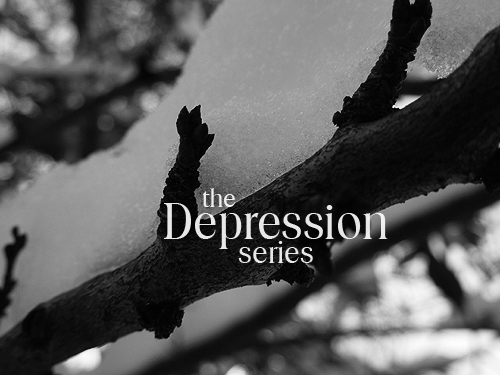Part 2 – The Depression Series

My personal belief is that anyone who chooses or accidentally happens to look through the cracks of the common inertia that is usually called every-day life will experience some degree of depression. Consciously or not, depression is rooted in disappointment.
We grow up being explained how life is, how things work, and then we realize how much of our knowledge is not exactly knowledge, but merely recycled opinions and subsequent attitudes. Moreover, the people we trust with our education, those we’ve always asked for facts and clarifications in relation to our most difficult puzzles, they’re only human. They make mistakes, have limited knowledge, and we discover that the basis of our reverence towards them is our own idealized image of them. We all get let down quite early on in life.
However, the biggest deception lies in how we learn to see ourselves. From infancy, we’re coerced into submission – for obvious reasons and, usually, with the best intentions for everyone involved. You learn that being and doing “good” means obeying the rules imposed on you – whatever they may be, however big or small. The idea of true freedom gets a negative connotation and is replaced by a false one within the boundaries of these rules. You learn to comply, you get defined by others, you learn the words “right” and “wrong” and form concepts of them, long before you start asking yourself who you are. By then, your mind is full of preconceptions, and, in full honesty, it’s no one’s fault. It’s something we need in order to distill the essence of who we truly are.
Pretty depressing, isn’t it?
The truth is, pure freedom is yours at any point of your life, even in drastically limiting circumstances. You always have a choice. We sometimes think that obeying gives us more opportunities to choose, but even obeying is a choice. Every little thing you think, say or do is a choice. Right and wrong exist only in particular, in reference to a certain system and its rules. In terms of existence, there is no right or wrong – there is no right or wrong human being.
All this discourse was meant to introduce the following idea.
You are free to be as happy or miserable as you choose. You are totally free to be depressed. You are free to choose others’ ideas or form your own. You are free to see yourself as others describe you. You are free to build your own self according to your own desires. You’re free to change your desires and/or standards. You are free to be undecided and/or confused. You are free.
You cannot be depressed in absence of thought, illusion, a vision of how life “should” be, and that is why you have to start by acknowledging your freedom – freedom to think any thought you choose, believe anything that suits you, build your own values and principles. Most of all, you must acknowledge your freedom to change (starting with your mind).
The root cause for depression is not external, it’s inside. It’s in the inability of accepting the self, in not feeling worthy of love (or anything else, for that matter), in feeling powerless/exhausted/overwhelmed, in strong attachments to things and people who make us value life, even ourselves.
Your inner self is always trying to speak your own truth. Often, you muffle that voice, because your truth may not resemble anyone else’s, or what you perceive to be their truth – lots of people struggle quietly with this social integration issue.
You’re free to mind your own business, though. Instead of waiting for external validation, you can consider that your mere existence is your validation.
I’m going to make a computer analogy here. Imagine you’re making an inner partition to backup everything you’ve ever thought and felt. Now that it’s all secure and out of the way, reset the rest. Imagine you have now a clean desktop where you can work with data from your archive – bit by bit, at your own pace. The main idea here is to make room for the process of change. To keep this place clean and calm, these thoughts (affirmations) may be helpful:
“I am. Full stop. I don’t have to be anything in particular. I am, and that is enough. I am myself. The only truth is that I am; everything else is an interpretation, and could change at any time. I am.”
Next week we’re exploring a few aspects of depression with the help of some important questions.